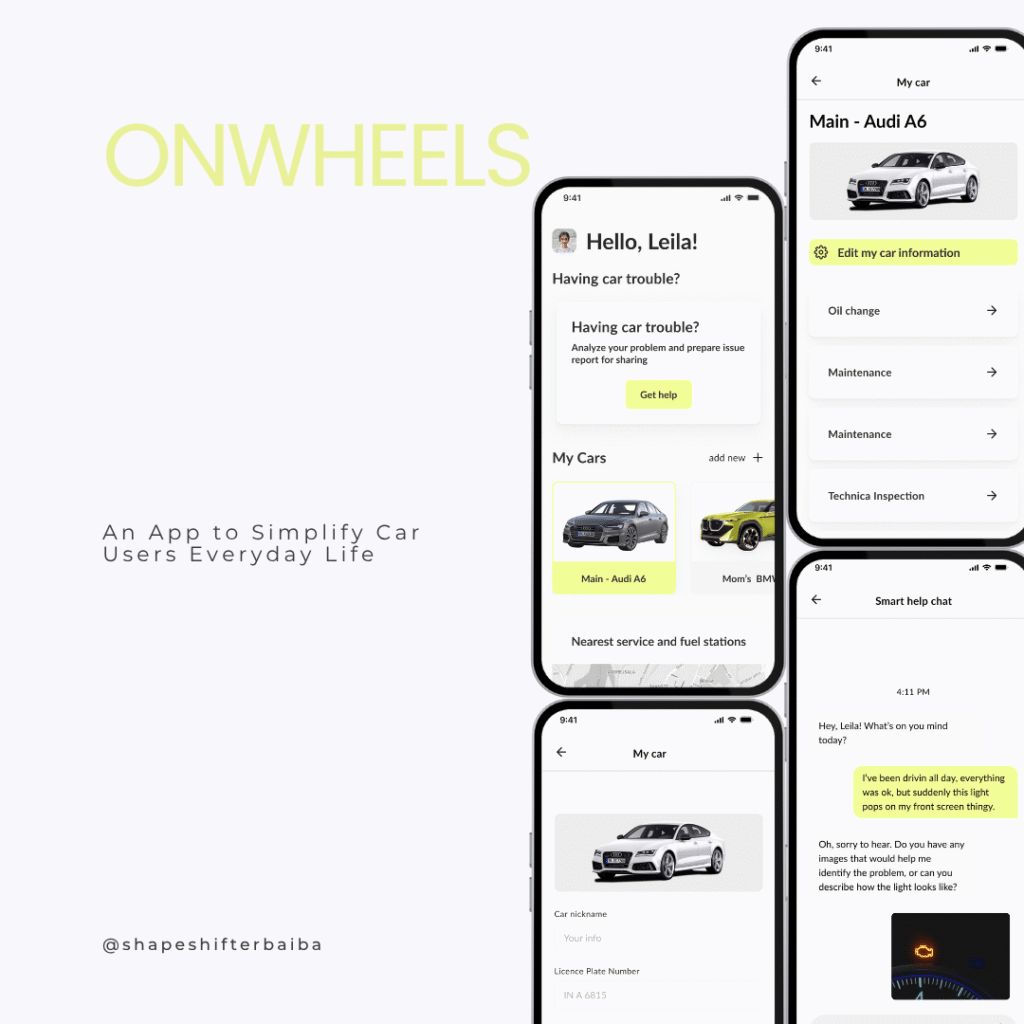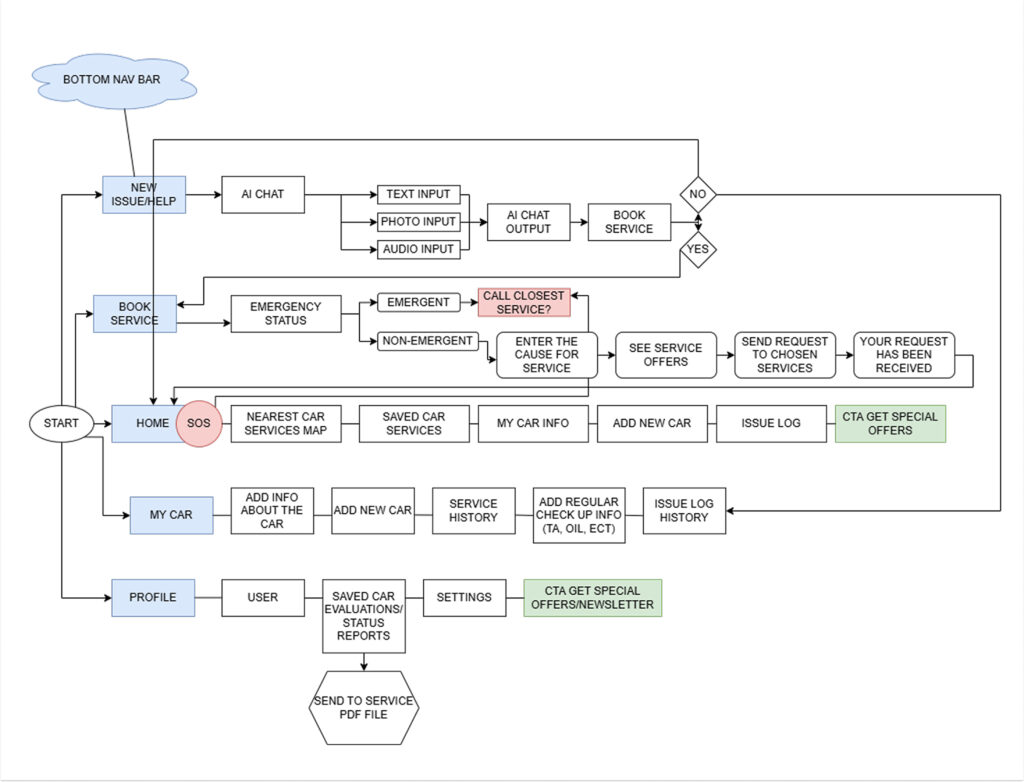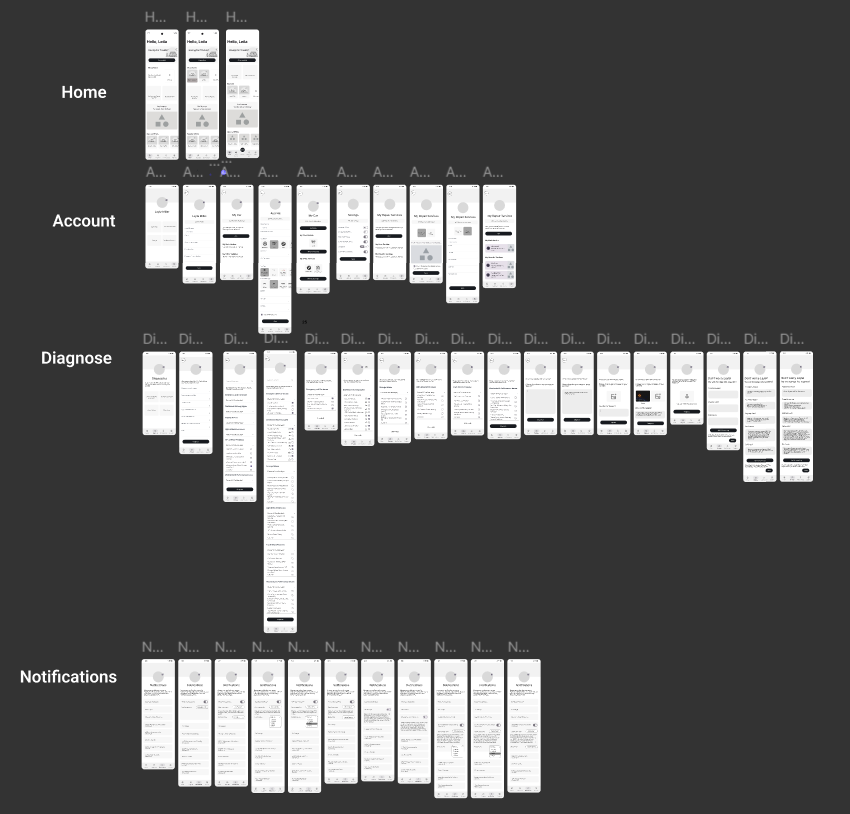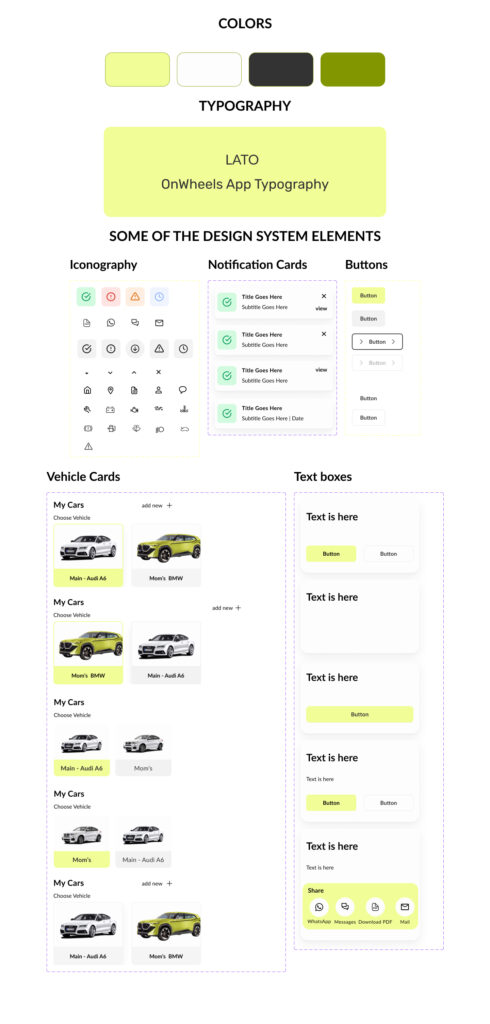UX/UI Design for an App OnWheels
I contributed as a UX/UI designer to the development of OnWheels, a car service app created within the SPRING UP program—an initiative empowering early-stage startups led by diverse teams with at least one female founder – in this project it was Evita Jaunozola, creator of OnWheels.
Other team members included my mentor Kristina Rodzina, my wonderful SpringUp team, Jekaterina Zhigulich (UX/UI) , Darya Goga (Project Manager), Agnese Fomrate (QA Testing), Elīna Sadauska (UX/UI).
The Product: OnWheels is a mobile app designed to help car owners diagnose vehicle issues, track repair history, and stay on top of important maintenance reminders. The app provides detailed explanations, DIY solutions, and long-term recommendations to reduce stress and keep drivers informed.

The Problem
Car owners often struggle to understand vehicle issues, keep track of repair history, and stay on top of important maintenance tasks. The lack of a centralized system makes diagnosing problems stressful and maintaining a car more complicated than it should be.
The Goal
Create an intuitive, accessible, and efficient app that helps car owners diagnose issues, track repair history, and stay on top of maintenance—all in one place.
The Process

Wireframing

Design System

Usability Tests
To evaluate the user experience of OnWheels, we conducted moderated usability testing with four participants. Each participant was asked to complete tasks that reflected key user goals, including registering a car, documenting a dashboard warning, and sharing a car issue summary with their mechanic.
All participants successfully completed the tasks, providing thoughtful feedback that revealed areas of strength as well as opportunities for improvement.
Key take-aways
- Issue description form needs clearer guidance
When asked to log a dashboard issue or share a problem summary, users hesitated on how much detail to include. Adding supportive microcopy, examples, or a step-by-step prompt would reduce uncertainty and improve consistency in input. - Visual design and clarity were praised
Participants appreciated the app’s clean interface, clear labels, and accessible layout. Button contrast and navigation structure were noted as user-friendly and intuitive. - Finding certain features took more time
Locating where to see past entries or documentation sometimes took longer than expected. - All core tasks were completed successfully
Users were able to register their car, document an issue, and send a summary to a mechanic without major difficulties, showing that the main flows are understandable and functional.
Up next
Based on this round of testing, upcoming design improvements will focus on:
- Making secondary features (like past issue history or user feedback) more discoverable
- Adding contextual hints to guide users when logging issues
- Fine-tuning navigation to reduce time spent searching for specific actions
Note
Some participants weren’t fully convinced of the app’s usefulness or were unsure why they would use it. This insight underlined the importance of clearer communication around the app’s core value — something that could be addressed through better onboarding, landing page messaging, or user education.
Since OnWheels is still a product in progress, this is definitely an area to explore and refine in future iterations.
The Result

Click Through Yourself
Reflection
The OnWheels project holds a special place in my heart — not only as a UX/UI case study but as a milestone in my journey through the Riga TechGirls Mentorship Programme. This was a deeply rewarding experience, made even more meaningful by the incredible people I had the chance to work and grow with — my mentor Kristina Rodzina, our inspiring lead Diāna Butina, and my talented SpringUp team: Evita, Jekaterina, Darya, Agnese, and Elīna. I’m truly grateful to every person I met during this journey.
Through this project, I had the opportunity to dive into real-world UX research, map user journeys, and translate insights into thoughtful UI designs. For the first time, I conducted real-life usability testing — and that hands-on experience was both eye-opening and empowering. It taught me how much value lies in observing real users interact with your product, and how even small changes can create big impacts.
OnWheels was more than just a project. It was a space for experimentation, collaboration, growth, and meaningful learning — and I’m proud of what we created together.
